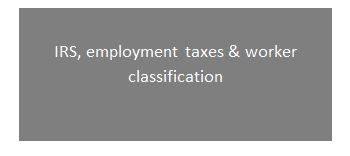Combs v. Commissioner Case

Taxpayers who operate small closely held businesses using a corporate entity need to be mindful that personal expenses, paid from a corporate bank account or the use of a corporate credit card for personal reasons may constitute a constructive dividend that is taxable. When a corporation pays expenses on behalf of a shareholder, it is conferring a benefit upon the shareholder. Depending upon the shareholder’s basis in the corporation, that benefit may be deemed a dividend distribution to the shareholder. It may also be considered a return of capital, which is non-taxable, or a gain.
In a recent decision, the Tax Court held that the payment of personal expenses from a corporate bank account constituted a constructive dividend that was taxable to the shareholder (Combs v. Commissioner -T.C. Memo. 2019-96). The case involved the assessment against a corporate owner of tax deficiency accuracy related penalties under 26 USC § 6662(a) as well as failure to file penalties under 26 U.S.C. § 6651 (a) (1) for the tax years 2010, 2011 and 2012.
The taxpayer, Patrick Combs (Combs), was an author, performer and motivational speaker who performed one person comedy shows and also had speaking engagements. The compensation he received for these engagements was deposited into a corporate bank account of an entity in which the taxpayer was the sole owner, officer and director. The taxpayer and his significant other were the only signors on the Bank of America account and were also authorized users of a corporate American Express Card.
Combs and his girlfriend utilized the corporate funds as well as the Corporate American Express card for the taxpayer’s personal expenses during the tax years under examination. The personal expenses were detected during an IRS audit of the taxpayer’s corporate tax returns for the years 2010-2012. During the examination of the corporate returns, the IRS also conducted an audit of the taxpayer’s Form 1040 for the same tax years.
The examiner disallowed most of the corporate deductions, based upon the absence of any proof that the deductions were legitimate business expenses, resulting in a notice of tax deficiency to the corporation.
In addition, the IRS determined that the payment of the taxpayer’s personal expenses that were disallowed as deductions for the corporate entity, constituted constructive dividends and that such dividends were taxable to Combs. In this regard, the IRS issued an individual notice of deficiency to Combs for additional tax, penalties and interest.
Constructive dividend reporting
26 U.S.C. § 301 (c) (1) provides that a constructive dividend must be reported as income. When a corporation has sufficient earnings and profits, and distribution of property to a shareholder is made, the distribution is deemed to be a dividend. To the extent distributions to a shareholder exceed a corporation’s earnings and profits; the excess is treated as return of capital, and considered nontaxable, subject to the shareholder’s basis in the corporation. Where a distribution exceeds a taxpayer’s basis in a corporation, the excess is treated as a gain under Sections 301 (c) (2) and (3). Truesdell v. Commissioner, 89 T.C. 1280, 1295-1298 (1987).
In Combs, the Court citing Boulware v. United States, 552 U.S. 421 (2008), pointed out that:
“Characterization of a distribution as a dividend does not depend upon a formal dividend declaration.” Id.
The Court also pointed out that when an individual receives a distribution of property without any expectation of repayment, that distribution confers a benefit to the shareholder, and as such, constitutes a constructive dividend.
Small business owners who conduct business as a corporate entity are particularly vulnerable. The practice of paying personal expenses from corporate funds is more widespread than reported and prevalent in virtually every business sector. Factors contributing to this practice include lack of formal policies and procedures in the business, ignorance as to what constitutes an ordinary and necessary business expense, direct or indirect control over disbursements from the business, and in certain cases, greed on the part of the business owner.
The lesson here is clear. Establishing a business entity through Legal Zoom and securing a federal EIN, in and of itself, does not constitute good corporate tax governance. Business owners who engage in the practice of paying their personal expenses out of corporate funds will invariably find themselves at odds with the IRS, and could face the assessment of additional tax, substantial penalties and interest. In extreme cases, they may also face criminal prosecution.
Taxpayers currently engaged in these practices, who have yet to come under examination, should seriously consider taking remedial steps to come into compliance. Consultation with an experienced tax attorney and painstaking honesty by the taxpayer will generally yield the best solutions.







